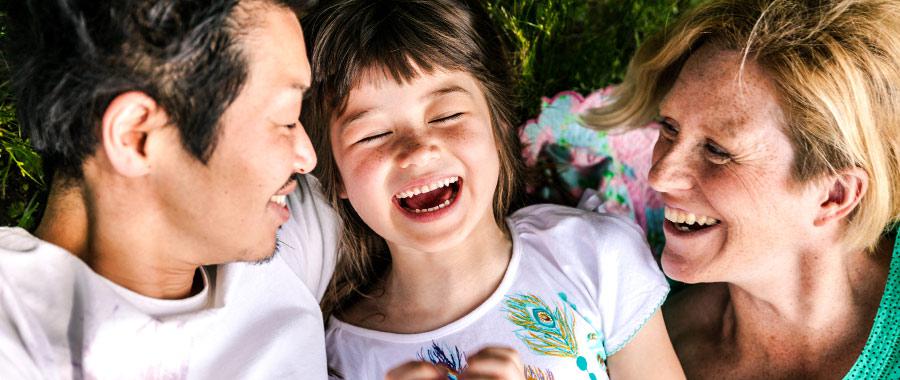In the delicate tapestry of parenting, where every thread weaves a narrative of growth, missteps, and triumphs, the principles of constructive communication hold substantial importance. The Bahá’í teachings, illuminating the pathway toward harmony and nurturing, advocate for raising children with an ethos fundamentally opposed to harsh criticism. This guide endeavors to encapsulate the wisdom embodied in these teachings, offering a vision for fostering resilience, confidence, and understanding in our children.
At the heart of Bahá’í teachings lies a profound appreciation for the intrinsic nobility of the human spirit. Each child is perceived as a sacred being, endowed with potential and the capability to contribute meaningfully to the world. Thus, it becomes imperative to cultivate an environment that nurtures this divine essence rather than stifles it through negative reinforcement. The first guiding principle, therefore, is to acknowledge the innate worth of each child; this recognition translates into a parenting approach steeped in respect and love.
The metaphor of a garden aptly illustrates the nurturing of a child’s development. Just as a gardener must understand the unique needs of each plant — varying levels of sunlight, water, and care — parents too must adapt their nurturing to the individual characteristics of their children. Harsh criticism can be likened to a tempest that uproots tender blossoms, while gentle guidance acts as a consistent rain, fostering growth and resilience. Thus, the initial step in this journey is to replace critical remarks with constructive feedback designed to guide rather than punish.
Furthermore, the profound practice of active listening serves as a cornerstone in fostering an atmosphere free from criticism. Children, like saplings, require a stable base — a foundation built on trust and understanding. Parents are encouraged to cultivate this foundation by engaging attentively with their children, validating their feelings, and articulating their thoughts. This practice not only fortifies the bond between parent and child, but also empowers the child to express themselves openly, fostering emotional intelligence and self-awareness.
Additionally, modeling the behavior we wish to instill in our children is paramount. The Bahá’í teachings emphasize the importance of reflection — cultivating virtues such as patience, kindness, and forgiveness. By demonstrating these virtues in our interactions, parents act as living examples of the values they wish to impart. Children are astute observers; they absorb behaviors, unspoken lessons, and the underlying tones of interpersonal dynamics. By embodying positivity and constructive discourse, parents sow the seeds of resilience and empathy within their children.
Another pivotal aspect of this nurturing framework is the concept of setting realistic expectations. The Bahá’í teachings advocate for recognizing the developmental stages of children, understanding that each milestone is an opportunity for learning rather than a metric for judgment. When parents set attainable goals, grounded in an understanding of their children’s capabilities, they create a supportive environment in which children can strive without the fear of failure. This approach transforms challenges into learning experiences, fostering a growth mindset that embraces effort and perseverance.
In line with this, the art of praise must be wielded with discernment. In the context of Bahá’í teachings, it is not sufficient merely to commend achievements; instead, focusing on the effort expended and the values exhibited during the process imbues praise with greater significance. For instance, acknowledging a child’s hard work, resilience in the face of difficulty, or willingness to help others nurtures a desire to cultivate those very virtues. This shift from performance-based commendation to an emphasis on character development fosters a sense of intrinsic motivation rather than reliance on external validation.
Moreover, embracing the power of collaborative problem-solving can further mitigate the inclination toward harsh criticism. Encouraging children to participate in the decision-making process concerning their actions and the consequences thereof cultivates a sense of agency and responsibility. This collaborative dynamic emphasizes the collective journey of learning; it transforms potential conflicts into constructive dialogues framed by mutual respect. Such exchanges not only strengthen the parent-child bond but also equip children with essential skills for handling interpersonal relations in broader contexts.
Another vital tenet of the Bahá’í perspective on parenting is the necessity of cultivating an ethos of forgiveness. The acknowledgment that imperfection is an inherent facet of the human experience engenders compassion — for oneself and for one’s children. When parents model forgiveness, both towards their children and themselves, they create a resilient emotional environment where mistakes are viewed as opportunities for growth rather than failures meriting harsh criticism. This practice builds a strong moral framework and allows children to navigate life’s complexities with grace.
Lastly, the significance of spiritual education cannot be overstated in this nurturing journey. The Bahá’í teachings encourage a holistic approach that integrates material and spiritual growth, underscoring the necessity of instilling moral principles alongside intellectual development. Engaging children with stories of virtue, principles of service to others, and the beauty of diversity cultivates a well-rounded individual imbued with a sense of purpose. This spiritual foundation ultimately fortifies their resilience against external negativities, equipping them with the tools to flourish amid life’s challenges.
In conclusion, the journey of raising children without harsh criticism, as illuminated by Bahá’í teachings, is a profound and rewarding venture. By fostering an environment of respect, active listening, virtuous modeling, and collaborative problem-solving, parents can guide their children toward becoming individuals who not only embrace their own potential but also contribute positively to the tapestry of humanity. In this process, the guiding light of understanding, love, and compassion seeks to nurture a generation destined to thrive. Such an approach is not merely about avoiding negativity; rather, it is about planting the seeds of hope, resilience, and virtue to flourish in the world. As we cultivate this garden of human potential, we participate in the sacred legacy of nurturing the souls entrusted to our care.
